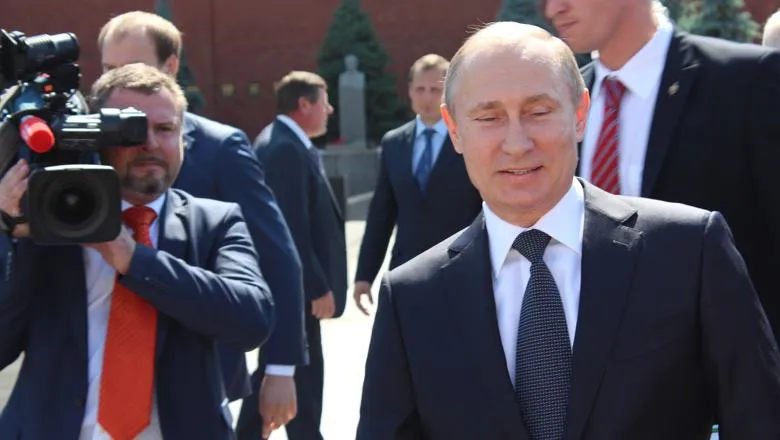My findings show that Russian television clearly affects television viewers’ opinions about politics. By borrowing the most accessible ideas to form opinions about politics, citizens rely on interpretations of events provided by television news.
Dr Maxim Alyukov
28 January 2022
How has state-owned media in Russia shaped public opinion on Ukraine?
Russia’s authoritarian regime relies on the political disengagement of citizens to maximise the impact of state-controlled media networks and broadcasts, new research has found.

Repetition of easily-accessible themes and ideas has allowed Russian TV news stations to shape public opinion about the conflict in Ukraine, garnering broad support for President Vladimir Putin and his course of military action in eastern Ukraine starting from 2014.
However, while the suppression of political engagement has created space for state-owned media to shape public opinion and discourse, the research suggests the effects could be short-lived and means any perceived support for the regime is superficial and subject to rapid change.
The findings were revealed in new research authored by Dr Maxim Alyukov, a research associate at the King’s Russia Institute, and published in the journal Europe-Asia Studies.
Dr Alyukov said: “My findings show that Russian television clearly affects television viewers’ opinions about politics. By borrowing the most accessible ideas to form opinions about politics, citizens rely on interpretations of events provided by television news.
“However, this effect is short-lived: as they are not engaged in public affairs on a routine basis, they do not have coherent schemas and cannot apply them to political information. As a result, they cannot assimilate ideas provided by state-owned television.”
Data for the study was gathered from focus groups held in Moscow and St Petersburg. Participants were asked to watch and share their opinions on reports of the Ukraine conflict broadcast by Russia’s largest TV network, Channel 1.
Dr Alyukov’s findings add to research which suggests that citizens living in autocracies lack the opportunities, motivation and tools to substantively process news.
When perceiving news, citizens express both critical and supportive reactions towards the regime without integrating them into coherent views and thus support authoritarian equilibrium by being unable to articulate consistent opinions.
You can read the research in full here.

